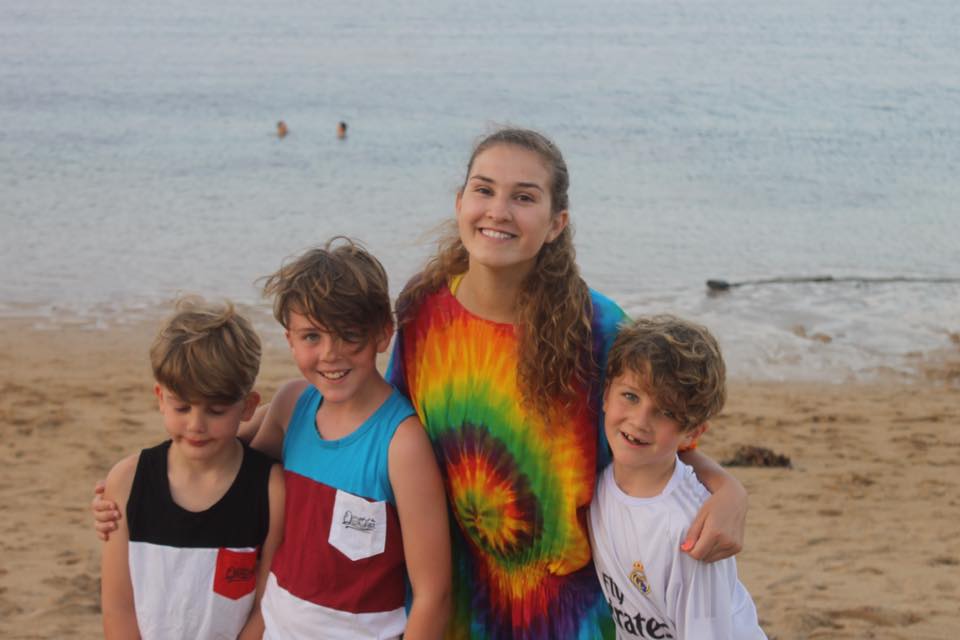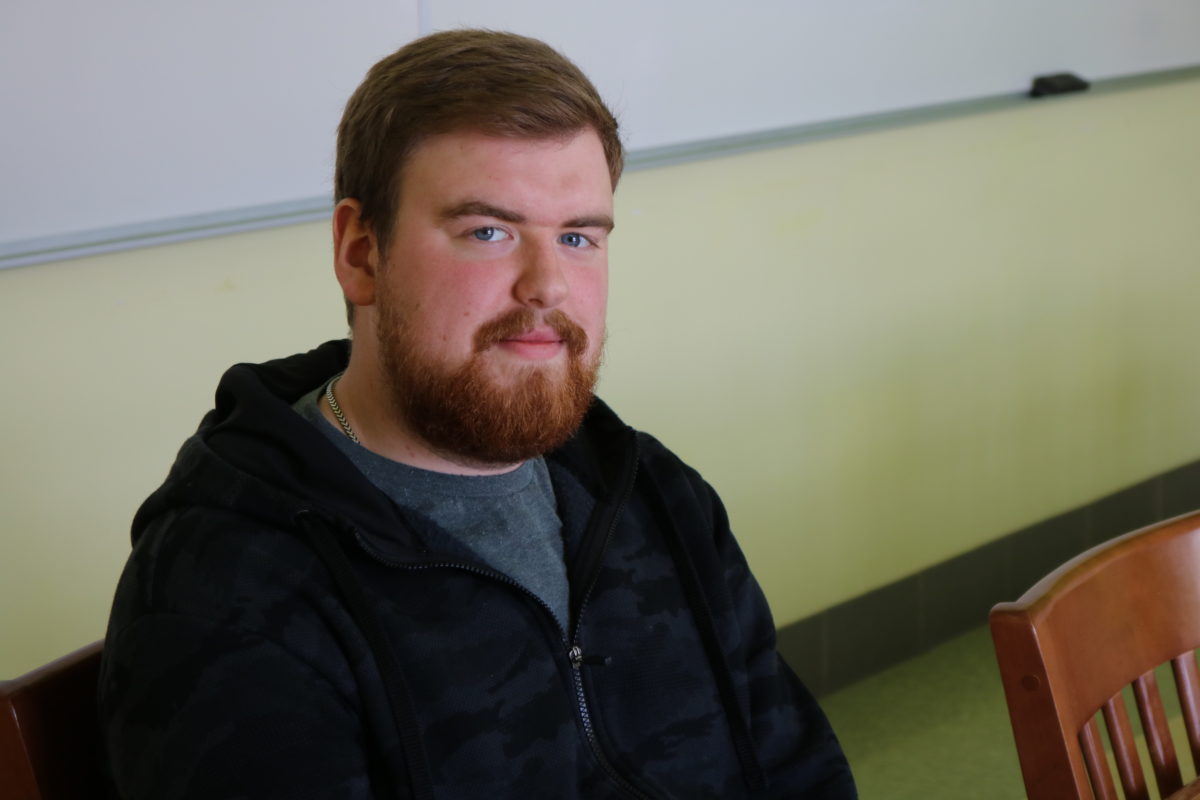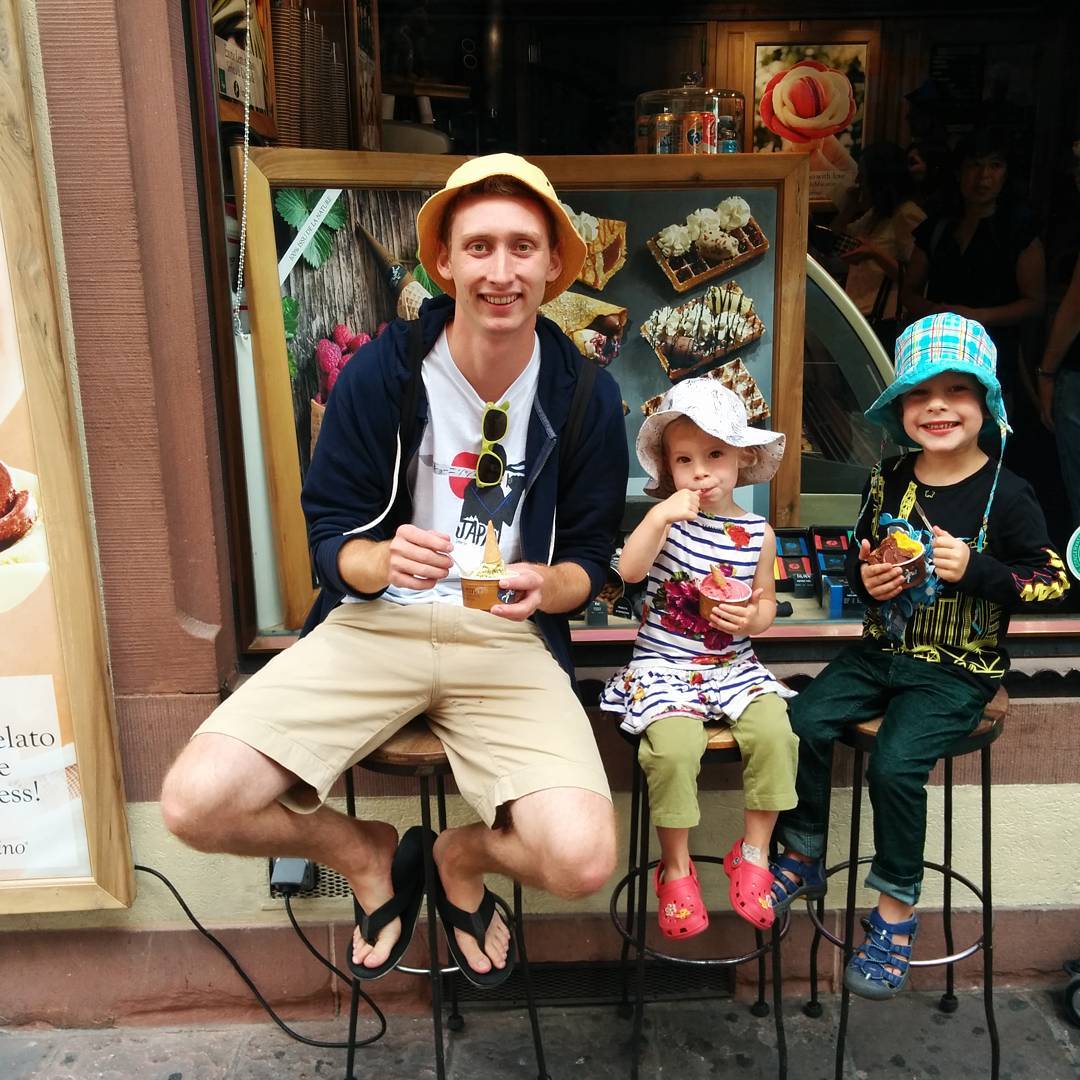Imagine travelling to a country you’ve never visited, to live with a family you’ve never met and look after their children.
Mija Macdonald, a third-year psychology major at St. Thomas University, travelled to Newcastle, Australia near the end of April 2016 to do just that.
She worked as a nanny, taking care of three young boys, ages six, seven and nine.
Macdonald remembers sitting in the backseat of the parents’ car between two of the boys. They were driving home from a Christmas light show shortly before she was scheduled to head back to Canada and both of the boys fell asleep on her shoulders.
“It was one of the most heartwarming and incredible moments while I was there. I just thought to myself, ‘Wow, I really am a part of this family, I really am a big sister.’ Thinking of it now still makes me emotional because of how rewarding feeling that love was,” she said.
Macdonald is always looking for adventure, so she was encouraged to check out a program called AuPair that connects young single people with families all over the world who are looking for nannies.
“After second year, I didn’t want to stay in Fredericton and I didn’t want to go back to [my hometown]. I decided that I wanted to travel because there are always opportunities in other places,” she said.
Through the AuPair program, food and rent are paid for and nannies are paid a salary to look after the host family’s children. The only expense for nannies is travel costs.
Macdonald originally planned to stay in Australia for four months during the summer, but she ended up staying for eight months, taking a semester off school.

Her responsibilities included getting the boys ready for school on weekdays and in the evenings she would get the boys snacks, help them with homework and take them to extracurricular activities. But while the boys were at school, she would have the day to herself.
On the weekends, Macdonald travelled the country with friends she met through a Facebook page connecting other AuPair nannies in the same area.
“The biggest part as to why I [wanted] to go to another country … was because I [wanted] to experience a new culture and seeing not just a quick couple cities that have the highlights, but actually getting a feel for their culture. Eating the food they’re eating, living the life they’re living, before I come back to reality.”
Macdonald returned to Canada in December of 2016, but she plans on nannying in Italy this summer.
However, she doesn’t want to stay longer than two months.
“[The reason I came back] was that I started to miss the progression of life. Finishing my degree or moving up in a career path, all of those different things that are fulfilling in the sense of moving forward. I was growing as a person and the travel was amazing but at that point in time I had grown to where I wanted to be,” she said.
Getting stuck in one place is also a fear of Jonathan Norlander, a Swedish exchange student at STU. He’s in his final year of university and this coming September, he’ll be spending nearly a year in Stuttgart, Germany, looking after two children.


“I’m doing it to take a gap year. I’ve been studying all my life. I went straight from high school to university so now I’m fed up with my studying,” he said.
“I don’t want to get a job back home and get stuck at the job, because you get a lot of money and you get comfortable and then you get stuck there for the rest of your life, which is not something I want to do. It’s probably one of my biggest fears: getting stuck in one place. I don’t want to get stuck.”
Norlander grew up as the youngest in his family but when he was 12-years-old, his mother mentioned a friend of hers was looking for someone to look after her children.
“She asked me jokingly, ‘Is this something you could do?’ because I had pretty good English by then. I said no, because I didn’t like kids. Now I changed my mind, because I see it as an opportunity to do something else.”
Norlander is also using the AuPair program to coordinate with a family.
“It’s like Tinder but for families,” he said. “If you’re looking to do something else other than studying or working, I highly suggest going out in the world and doing something like this. Don’t always stay in one place. Go off in the world and do something else because I think there’s a lot of pressure on young people today that we have to build our careers.”
Macdonald learned this lesson while she was in Australia.
“When I went back to my parents, all the questions they were asking that used to stress me out before … turned into simple, adult conversations,” she said.
“Once I got a better grip on where I was at in my life, I was more comfortable with giving them answers [to questions] like, ‘Oh, what are you going to do?’ My answer was, ‘I’m not really sure what I’m going to do but I can tell you what I’m doing right now to open up these opportunities for myself and decide when the time comes.'”


Robbie Lynn, a fourth-year STU student honouring in English, nannied for a family in France.
“I learned a sense of independence from doing some travelling by myself and … it was good to get outside my bubble. In Europe, the people that I met, there was such a love for life and it was just cool seeing what was different and what was the same,” he said.
Lynn travelled to France in June of 2016, where he stayed for three months with a family of four. He looked after a three-year-old girl and a five-year-old boy.
“The kids were really happy kids and they had big imaginations, and I do theatre, so we played lots of pretend games,” Lynn said.
He remembers teaching the son, Julian, how to play Ninja, the game where a friend puts their hands out and you try to slap them before they’re pulled away. But Julian wanted to play the real ninja game.
“I was like, ‘What’s the real Ninja?’ and it was just running around pretending to be ninjas and that’s like way more fun than a stupid game with rules.”
Although he’s worked with children before and enjoyed his summer with the children, Lynn doesn’t plan on working as a nanny again.
“You don’t really make a lot of money at it so it’s a really good thing to do once or twice but … for me, it was more a thing I did to learn about myself.”
Macdonald suggests doing your research is the easiest to have a great experience.
“Do your research on the visas you need, on the family. Read their profile carefully and ask them questions. Skype the family, a few times if you can, and interact with the children beforehand and see how the family interacts with their children,” she said.
But if anything, Lynn believes the best piece of advice is this:
“Definitely don’t do it if you don’t like kids.”

